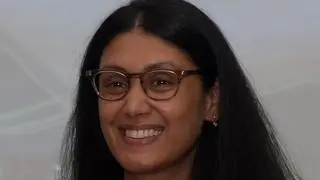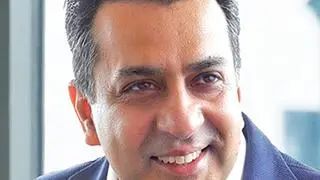Your mobile phone will soon become a boarding pass, a wallet, a national identity card and everything else, according to Mr Joseph J. Atick, Deputy Executive Vice-President of the $14-billion French firm Safran.
“Your phone will replace as the single-point identity and address of people. Several countries have already begun to accept bar-coded messages on mobile phones as boarding passes. This is going to be a norm in the next five years. Identification solutions with mobility are exciting,” he said.
Safran is a global leader in aviation, defence and identification technologies.
Considered to be a pioneer in biometrics and facial-recognition technologies, Mr Atick said the ultimate aim of biometrics was to provide greater convenience to people. The initial focus, however, was on security following 9/11 attacks.
Talking on increased use of biometrics in international travel, he said electronic passports were going to be a norm in the next few years. The US has been promoting e-passports that capture passenger data as people walk.
“European countries, too, have begun to issue these passports. About 80 per cent of countries would have e-passport programmes by the end of next year. The other potential area for identification solutions was electronic visa-processing,” he said.
Mr Atick, who sold his L1 Identity Solutions to Safran, said his company sold 50,000 iris and fingerprint devices for the unique identification (UID) programme in India, holding about 40 per cent share. The programme sought to deploy two lakh such devices in four years.
He said the UID project had broadened the scope of biometric solutions. While the US used them mostly for security, countries like Indonesia were looking at the Indian model of using biometrics for identification of people.
“Automation of identification process would go a long way in empowering action of honest majority,” he said.








Comments
Comments have to be in English, and in full sentences. They cannot be abusive or personal. Please abide by our community guidelines for posting your comments.
We have migrated to a new commenting platform. If you are already a registered user of TheHindu Businessline and logged in, you may continue to engage with our articles. If you do not have an account please register and login to post comments. Users can access their older comments by logging into their accounts on Vuukle.